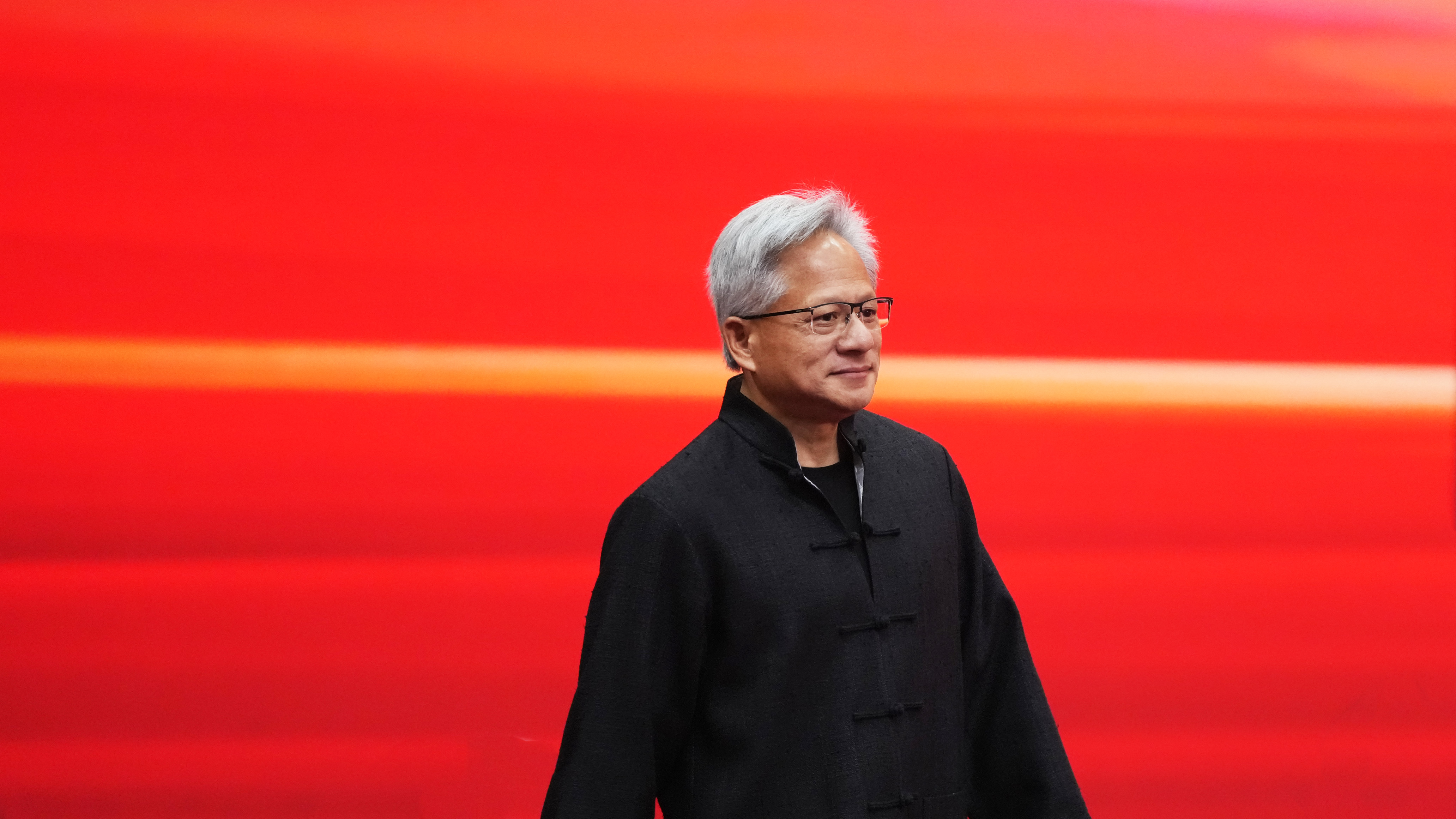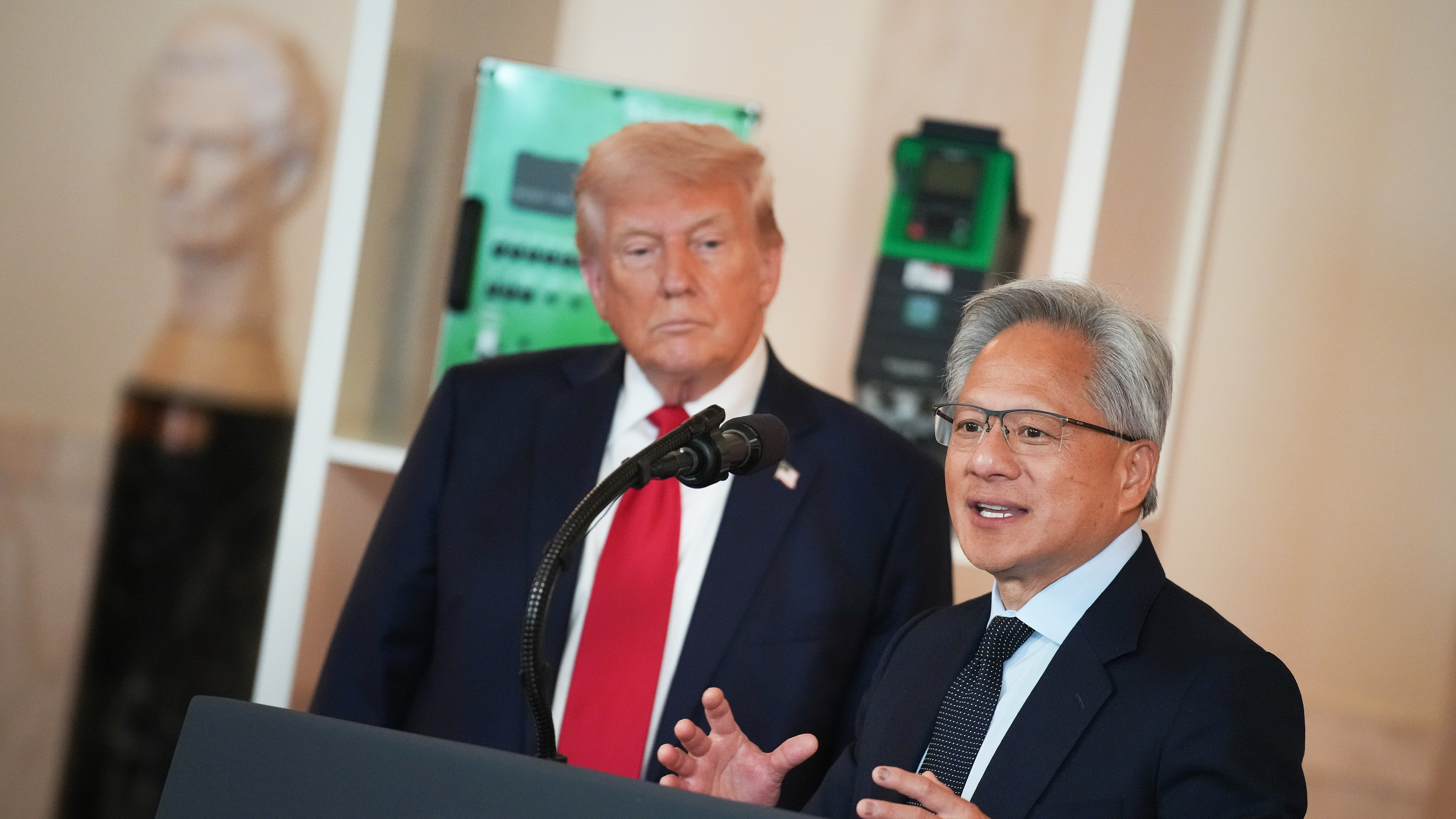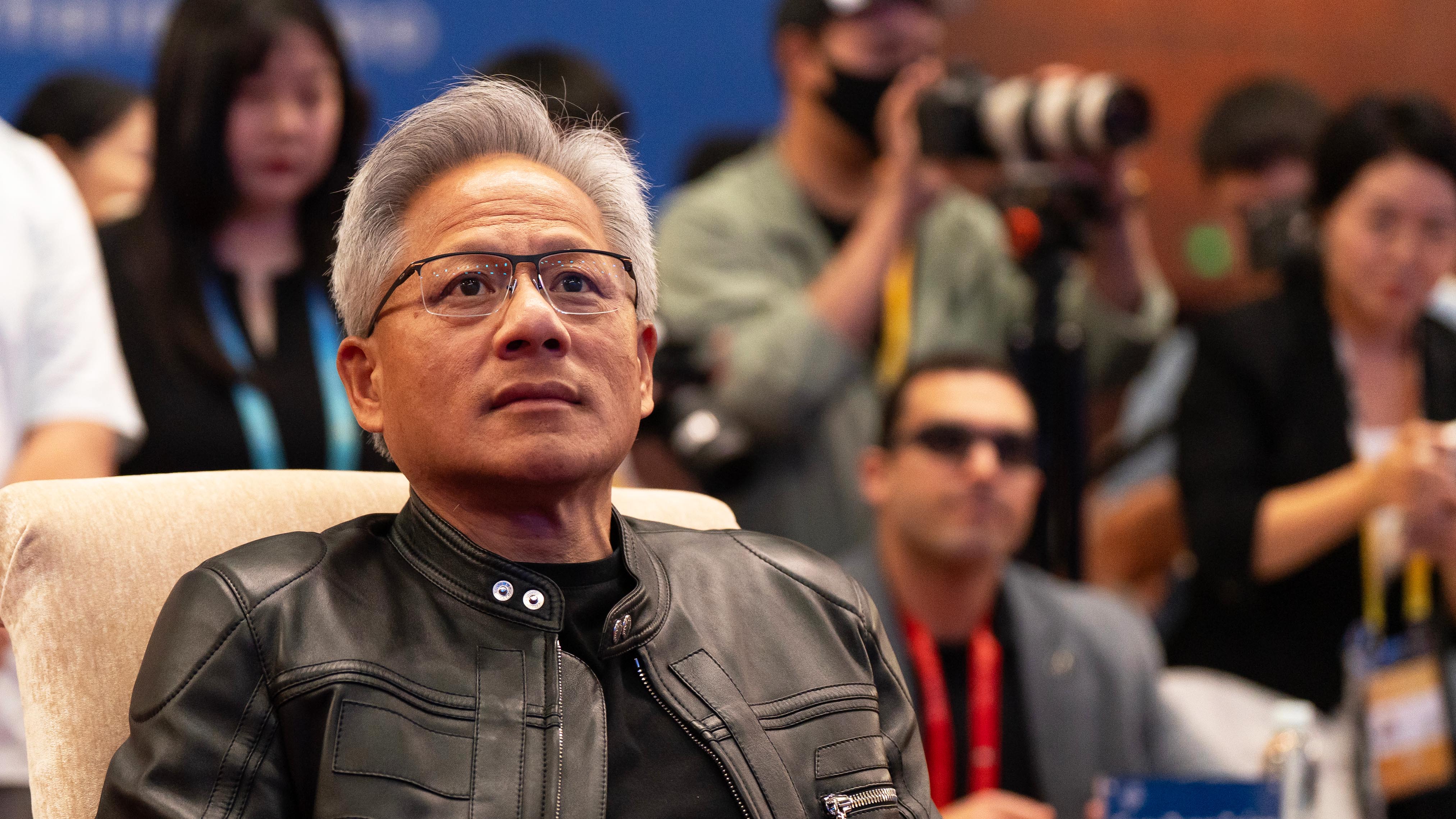"I don't think I changed his mind" — NVIDIA CEO comments on H20 AI GPU sales resuming in China following a meeting with President Trump

All the latest news, reviews, and guides for Windows and Xbox diehards.
You are now subscribed
Your newsletter sign-up was successful
NVIDIA became the first company in history to hit a $4 trillion market capitalization on July 10, 2025, and it hasn't stopped climbing since.
As of the time of my writing this on July 18, NVIDIA is sitting at a cool $4.19 trillion evaluation, putting it well ahead of the second-place Microsoft at $3.83 trillion.
A large part of NVIDIA's surge that has pushed it well beyond the $4T mark is the fact that the company has received a green light from the US government to resume H20 AI GPU sales in China.
The news officially arrived in an NVIDIA blog post on July 14, in which NVIDIA CEO Jensen Huang is said to have reached a deal upon visiting President Trump at the White House.
NVIDIA's H20 AI chips are specific to the Chinese market, created as an answer to the US government's strict ban on H100 and H200 chips, which are quite a bit more powerful.
Regardless of the disparity in performance for NVIDIA's AI chips, the H20 models originally received a Chinese market ban by US authorities in April as part of the tariff snafu.
This resulted in a $5.5 billion money flush for NVIDIA as it scrambled to work around the newfound restrictions.
All the latest news, reviews, and guides for Windows and Xbox diehards.
NVIDIA CEO Jensen Huang's $1 million seat at a Mar-A-Lago dinner with US President Trump just before the April H20 ban didn't make a difference.
So, what changed between then and now, and why is NVIDIA once again allowed to sell its H20 AI GPUs to China?
NVIDIA CEO Jensen Huang knows how to lobby for his chips
The reversal of the US ban on H20 AI GPUs to China didn't just happen for no reason. Perhaps unsurprisingly, NVIDIA's CEO has been busy at work lobbying for his company's chips to be sold around the world.
From the NVIDIA blog post announcing the resumption of H20 sales in China, Huang is quoted as saying:
"We believe that every civil model should run best on the U.S. technology stack, encouraging nations worldwide to choose America."
That certainly sounds like the correct phrasing to use when bending the ear of President Trump. Indeed, a recent report from the New York Times extrapolates on the situation.
Part of Huang's main argument involves keeping American-made AI chips as the global standard no matter political tensions; anything less would be "a grave mistake" and would hand over China's enormous market to Chinese rivals like Huawei.
Between April and now, NVIDIA's CEO hasn't been sitting idle, meeting with the US government's current AI czar, David Sacks, who has been reversing some of the Biden administration's rules on chip sales to other countries.
This paved the way for NVIDIA's re-entry into countries like the United Arab Emirates (UAE), involving a blockbuster AI deal that has since been put on hold due to a fear that chips could eventually end up in China (via The Wall Street Journal). Go figure.
Huang, who to me seems like an unlikely global political powerhouse, having come from an electrical engineering background, remains humble following the H20 ban reversal after his recent White House meeting with President Trump.
As reported by the NYT, Huang was quoted as saying, "I don't think I changed his mind. It’s my job to inform the president about what I know very well, which is the technology industry, artificial intelligence, the developments of AI around the world."
What's the right approach to selling AI GPUs around the world?
There's certainly an argument to be made for both sides of this predicament.
NVIDIA's CEO has a fair point that disallowing US hardware sales in China will drive more customers to the likes of Huawei.
That's bad news for NVIDIA, which currently controls about 90% of the AI chip market, but it's also bad news for the US industry as a whole.
The stock market has been looking good lately, but it's mainly propped up by a handful of AI firms, NVIDIA included, while everything else remains fairly flat.
On the other side, selling American chips directly to China will undoubtedly help its AI ambitions, which are currently a close second behind US firms. That's not a race that the US wants to lose.
There's a whole lot of geopolitical finagling going on here that I won't pretend to understand, but it certainly seems like a situation that doesn't have one easy answer.
NVIDIA's H20 AI GPU is essentially a nerfed H100, created specifically to sell to China around US restrictions.
While it's a far cry from the H100 and an even further leap from the H200, it's still an incredibly popular chip for handling AI workloads, and it's in use by massive companies like Alibaba and Tencent.

Cale Hunt brings to Windows Central more than nine years of experience writing about laptops, PCs, accessories, games, and beyond. If it runs Windows or in some way complements the hardware, there’s a good chance he knows about it, has written about it, or is already busy testing it.
You must confirm your public display name before commenting
Please logout and then login again, you will then be prompted to enter your display name.


